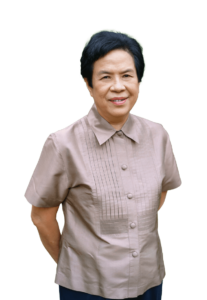
We extend a warm welcome to the NUS students in Nursing, Class of 2025. They embark on their undergraduate studies as Singapore works on reinvigorating the economy even as we continue to live with Covid-19.
The pandemic accelerated our adaptability and innovation, forcing us to quickly come up with creative solutions, including in teaching and learning.
BSc Nursing part-time student T Kavitha Rose was no exception, having to stay her course despite the challenges she faced in juggling work and study on top of caring for her mother. Read her story on page 21.
On the research front, Dr Chua Wei Ling’s work on the recognition and management of sepsis looks at the efficacy of interventions through an active learning approach such as simulation and game-based learning. In a field where timeliness is a factor, this can help augment greater improvements in care processes and patient benefits.
The systematic review provides insights into the educational effectiveness in improving the recognition and management of sepsis, which in turn helps develop future sepsis education for healthcare professionals and students, and ultimately improve patient-care.
Read about Dr Chua’s study (page 4), which has prompted talks on making improvements in sepsis-training.
In another study, Dr Shefaly Shorey and I, along with Dr Goh Poh Sun and and Dr Joelle Chua, looked into the effectiveness of coaching interventions on the mental well-being of NUS Students in Nursing—making the school the first in Asia to offer coaching to nursing undergraduates (page 9).
Our study centres on the belief that “coaching focuses on collaborating with learners in a stimulating and imaginative manner to help them optimise their potential by encouraging self-reflection and self-improvement.”
Also focusing on teaching is Associate Professor Lydia Lau, who is leading a virtual reality project through which clinical procedures can be taught. The IVR-P (Immersive Virtual Reality — Procedures), a collaboration between the nursing faculty and NUS IT, has been utilised by more than 400 students to augment their home-based learning.
Read about the winner of the Best Use Of Emerging Technologies category in the CIO Academy Asia’s inaugural 2021 INSPIRE Tech Awards, on page 12.
Beyond academic and healthcare institutions, nursing is just as essential in uniformed services. Two of our alumni — Military Expert 4 Olive Lim is a clinical skills trainer in the Singapore Armed Forces, while Military Expert 4 Nur Fadilah Jubir is a Senior Military Medical Expert in charge of training NS medics — talk about their roles on page 16.
I hope you enjoy reading our publication.

Prof Emily Ang
Head (NUS Alice Lee Centre for Nursing Studies)


